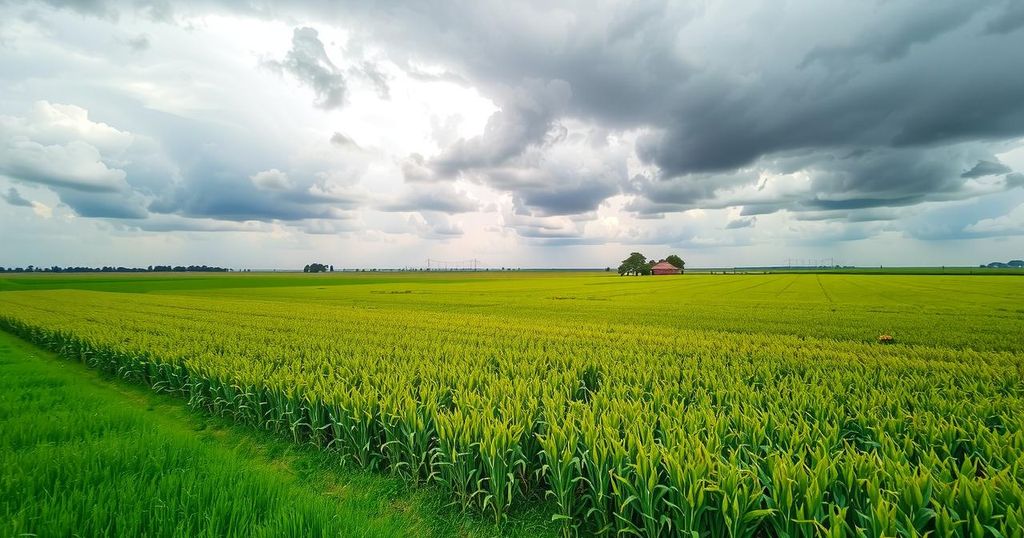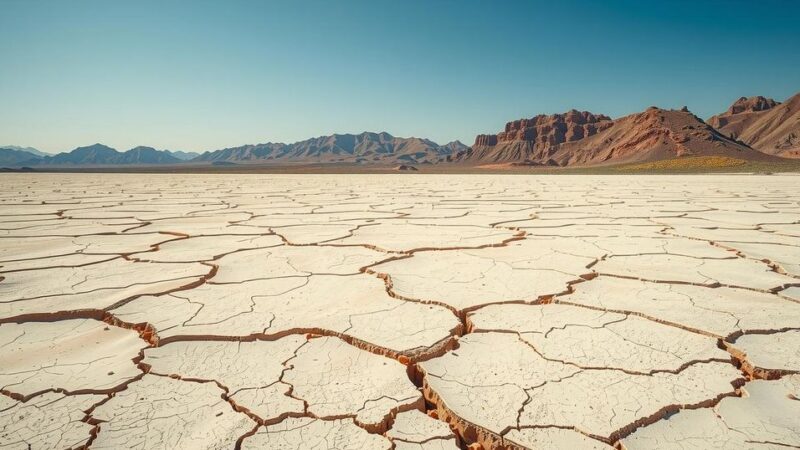Rising CO₂ levels due to climate change are adversely affecting the nutritional quality of staple crops, reducing protein and essential minerals, which poses severe risks to human health and food security. Research indicates significant nutrient declines in rice and maize, leading to possible health issues, especially in vulnerable communities. Urgent action and further research are needed to address these challenges and understand plant responses to changing conditions.
Climate change induced by greenhouse gas emissions is significantly impacting global food crops, particularly through rainfall changes and rising atmospheric carbon dioxide (CO₂) levels. These elevated CO₂ levels affect crop quality, particularly nutrient content, which has serious implications for human and animal health. According to recent research published in Engineering, while higher CO₂ levels enhance photosynthesis and growth rates in key staples such as rice, corn, and wheat, they also reduce nitrogen levels in plants, leading to lower protein and amino acid production.
Research shows that increased atmospheric CO₂ concentration has resulted in a decrease of nitrogen content in various crops by approximately 14%, as well as in woody vegetation, regardless of nitrogen fertilizer use. For instance, critical mineral nutrients in grains of rice and maize declined under high CO₂ conditions, including:
– Phosphorus: 1.0% (rice) and 7.1% (maize)
– Sulfur: 7.8% (rice) and 2.1% (maize)
– Iron: 5.2% (rice) and 5.8% (maize)
– Zinc: 3.3% (rice) and 5.2% (maize)
– Copper: 10.6% (rice) and 9.9% (maize)
– Manganese: 7.5% (rice) and 4.2% (maize)
A key finding from an international team of researchers indicates that wheat grain protein content decreased by 7.4% under CO₂ levels of 410 ppm (2019 levels), linked to significant drops in essential amino acids. These declines pose grave risks, especially for vulnerable communities, according to Professor Felix Dakora from the Chinese Academy of Agricultural Sciences.
Dakora emphasizes that the reduced nutritional value of staple crops could lead to a surge in health issues like protein-calorie malnutrition and micronutrient deficiencies, particularly in impoverished areas. He asserts that regions with nutrient-poor soils, particularly in Africa, could see a doubling in these malnutrition rates.
This issue extends beyond human nutrition; the nutrition levels in plants affect the entire food chain, as Dakora notes that livestock fed on nutrient-poor pastures produce low-nutrient meat, milk, and eggs. Additionally, grains and legumes lacking in essential nutrients may lead to food products that exacerbate conditions like diabetes and malnutrition.
To combat rising CO₂ levels, researchers advocate for nature-based solutions such as the Great Green Wall of Africa, a project aimed at restoring 100 million hectares of degraded land across the continent. However, Dakora stresses the need for further research to understand the mechanisms driving these changes in plant biology, including the interactions with soil microbes, which could enhance nutrient availability.
Additionally, Dr. Lewis Ziska from Columbia University indicates a wider concern about how elevated CO₂ levels alter plant chemistry, suggesting potential impacts on plant-based medicines and broader ecological effects. He notes that life on Earth fundamentally relies on plants, and the ongoing changes in plant chemistry could have unknown consequences for ecosystems and food systems globally.
The research underscores the urgent need to address the effects of rising atmospheric CO₂ on crop nutrition and global food security. With significant decreases in critical nutrients and protein levels across staple crops, the implications for human health and food systems could be dire, especially for vulnerable populations. Emphasizing the requirement for further studies and nature-based solutions is essential to mitigate these impacts and enhance the resilience of food systems in the face of climate change.
Original Source: cosmosmagazine.com






